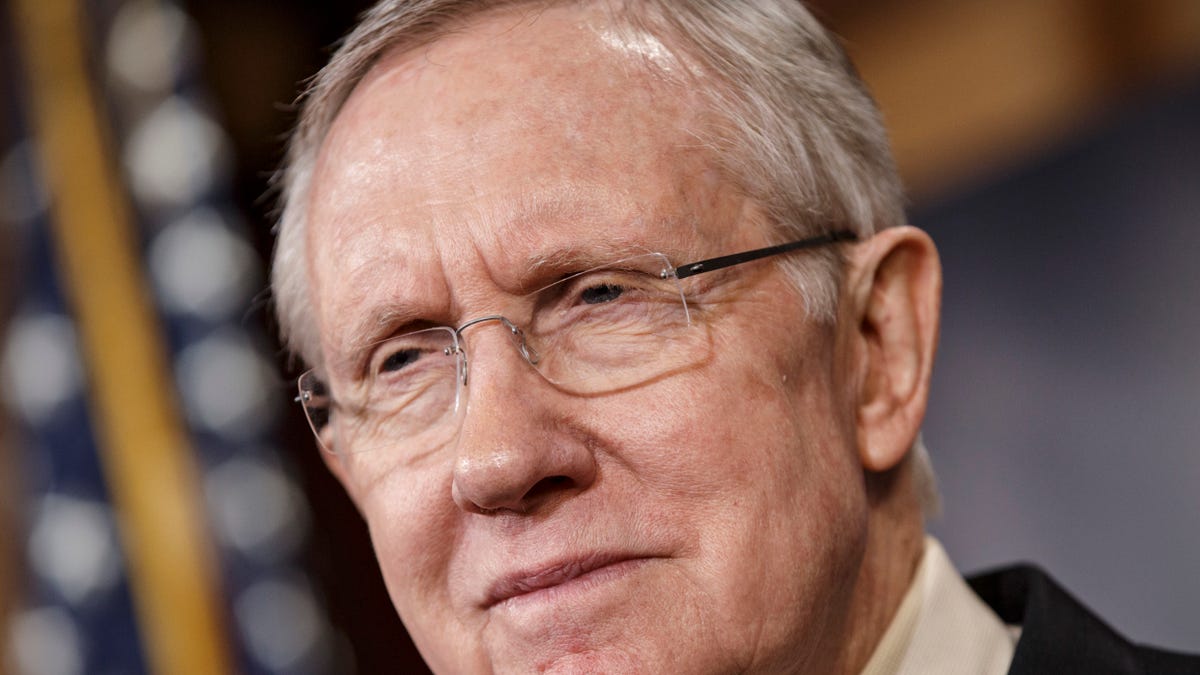
Senate Majority Leader Harry Reid, D-Nev., meets with reporters to urge passage of legislation to restore unemployment insurance benefits which expired Dec. 28, at the Capitol.
WASHINGTON – Senate Majority Leader Harry Reid retreated Friday from his refusal to allow votes on Republican-backed changes in legislation resurrecting benefits for the long-term unemployed.
A spokesman said Reid is "absolutely willing for the Senate to consider a reasonable number of relevant amendments from Republicans."
The spokesman, Adam Jentleson, did not specify a number or describe what he meant by relevant. That left it unclear, for example, whether Reid would allow a vote on a GOP proposal to pay for the bill by delaying a requirement for Americans to purchase coverage under ObamaCare.
The standoff over amendments has been among the obstacles to passage of the legislation.
Six Republicans joined Democrats earlier in the week to advance the measure over an initial hurdle, and several of them said they did so on the expectation that they would be permitted to seek changes.
Without the votes of at least five of the six, Democrats have virtually no prospect of pushing the measure to passage.
A spokesman for Kentucky Sen. Mitch McConnell, the Republican leader, responded warily to the announcement.
"Their position seems to change by the hour," said Don Stewart. "Yesterday Sen. Reid said `no' Republican amendments; today he's back to wanting to dictate which amendments he'll approve. Who knows where they'll be by Monday?"
Lawmakers in both parties have said they hope to reach a compromise early next week on the measure and send it to the House.
Among the issues is a Republican insistence that the price tag be offset to prevent deficits from rising.
Democrats advanced a plan on Thursday to offset the cost, but the savings wouldn't materialize for 11 years.
Under Congress' budget practices, legislation is routinely evaluated based on a 10-year timeline, meaning that official scorekeeping shows the Democratic bill raises deficits by $17.1 billion.
A program that provided long-term unemployment benefits averaging $256 a week for up to 47 weeks expired on Dec. 28. The plan Democrats unveiled on Thursday would cut the maximum duration to 31 weeks.




